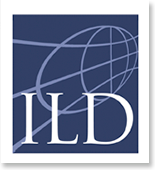The “State of the Connected World 2023 Edition” report by the World Economic Forum notably emphasizes the need for global governance of Internet of Things (IoT) devices. This enhances security, privacy, sustainability, interoperability, and equity. Moreover, the report also stresses the democratization of Sustainable Development Goals (SDGs) and responsible technology use. It identifies critical areas for collective action, including ethics, security, and accessibility, and calls for businesses and governments to adhere to universal best practices.
Key Areas of Exploration:
- Data governance and privacy: Addressing growing concerns about data collection, storage, and use in the context of connected devices and smart environments.
- Cybersecurity threats and vulnerabilities: Exploring the evolving landscape of cyber threats and highlighting the need for more robust security measures in connected devices and systems.
- Ethics and societal implications of AI and other emerging technologies: Examining the potential impact of artificial intelligence, blockchain, and other technologies on individuals and societies.
- International cooperation and collaboration: Exploring ways to foster international cooperation in setting norms and standards for responsible development and governance of connected technologies.
- Inclusive and equitable access to technology: Identifying challenges and opportunities to ensure equitable access to and benefits from connected technologies.
Overview
Section 1. Key priority areas
It emphasizes the need to address governance gaps, promote transparency, build trust, and encourage collaboration in the IoT landscape. These principles guide businesses, governments, and stakeholders to maximize IoT benefits and minimize risks, contributing to a sustainable and inclusive connected world. Firstly, the area of Ethics and Integrity emphasizes the importance of considering ethical issues when designing, deploying, and using IoT technologies. This involves ensuring that IoT solutions follow ethical principles, respect user privacy, and prioritize the well-being of individuals and society.
Secondly, Cybersecurity underscores the importance of cybersecurity measures in protecting IoT devices, networks, and data from potential threats and vulnerabilities. It highlights the necessity for strong security practices to defend against cyber-attacks and unauthorized access. Thirdly, the area of Equal Access advocates for equal access to technology and its benefits for everyone. This involves addressing infrastructure, economic, expertise, and inclusivity barriers for broader participation and engagement with IoT solutions.
Section 2. Other focus areas
Delves into topics beyond the key priority areas. These subjects might encompass environmental sustainability, financial and operational feasibility, interoperability, and system architecture. These aren’t the report’s main focus but remain essential for understanding the broader implications and challenges of IoT and connected technologies.
For example, environmental sustainability addresses the environmental impact of these technologies. Secondly, financial and operational feasibility examines the economic considerations of implementing IoT solutions. Also, interoperability and system architecture delve into the technical aspects of ensuring different devices and systems can operate seamlessly. These additional focus areas offer a broader view of the complexities and opportunities in the connected world landscape.
Section 3. The pandemic effect
Reveals the significant role the COVID-19 pandemic has played in accelerating the adoption and use of IoT and related technologies across various sectors. These include healthcare, manufacturing, and remote work. IoT solutions have proved crucial for effective contact tracing, efficient health metrics monitoring, and facilitating seamless remote operations during lockdowns.
As such, the increased reliance on connected devices highlights more than ever the importance of addressing security, privacy, sustainability, interoperability, and equity governance challenges. In this sense, the IoT application landscape has significantly transformed in light of the pandemic. For instance, it underscores the pressing need for robust governance frameworks to maximize benefits and mitigate risks in our rapidly evolving digital world.



